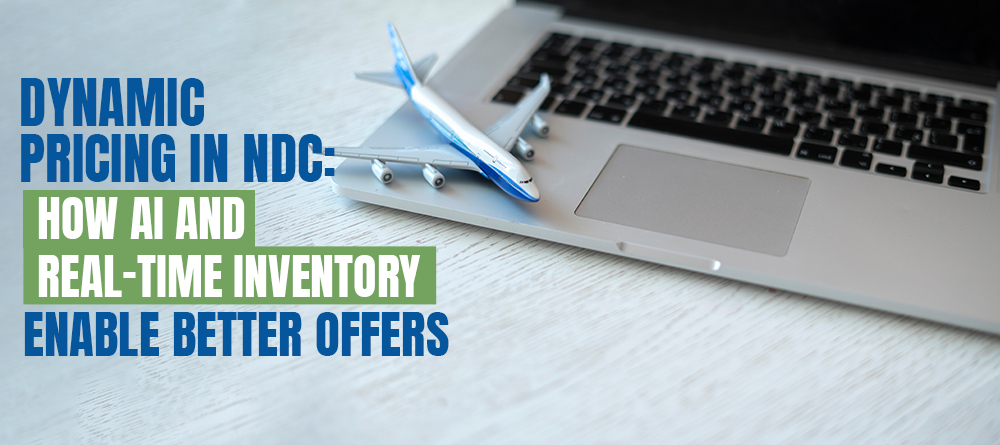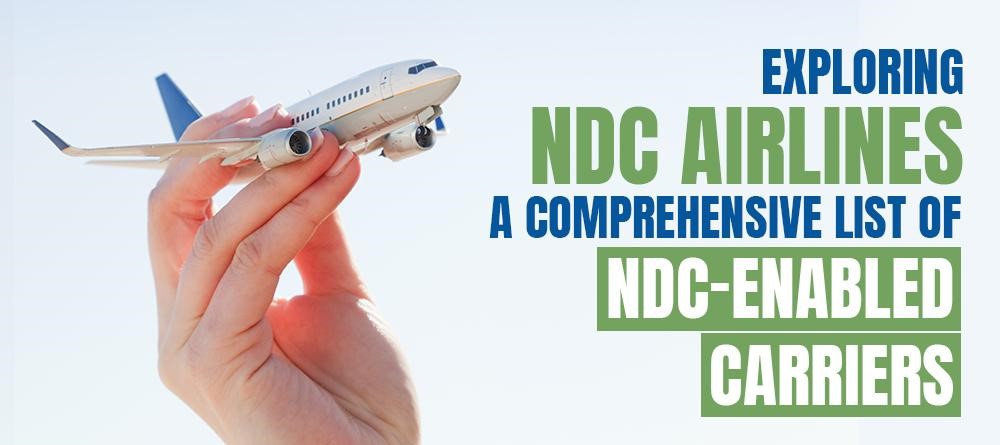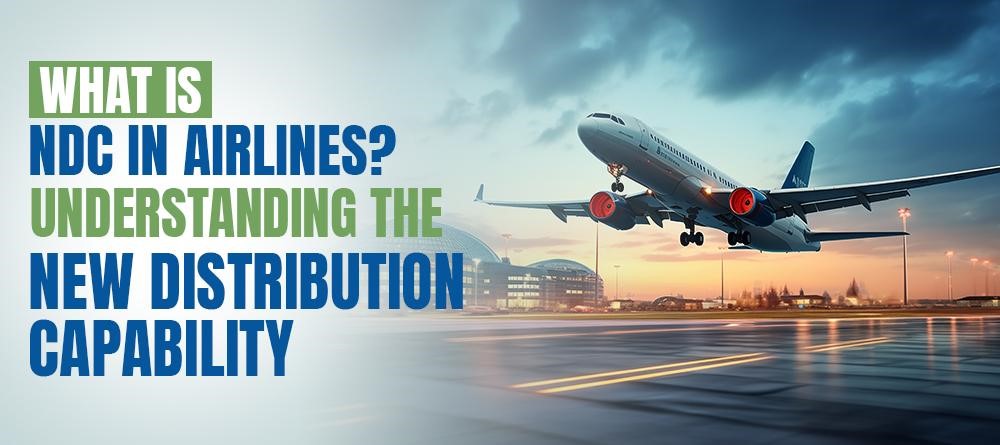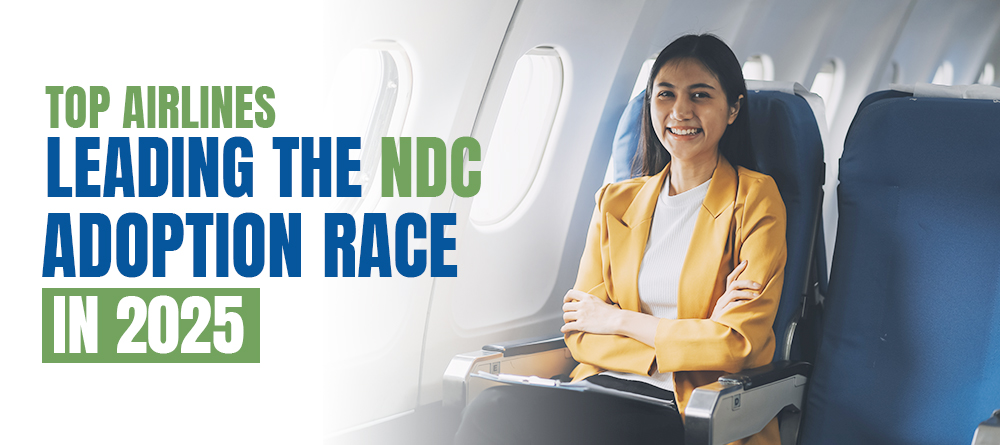Dynamic Pricing in NDC: How AI and Real-Time Inventory Enable Better Offers

Corporate travel is evolving rapidly. Travel managers today want more than just flights and basic fares. They want personalized content, real-time offers, and better control over spending. That’s why many of them are pushing airlines to go fully NDC-compliant.
But what does NDC mean? Why is it so important now? And how is it changing the relationship between airlines and corporate travel teams?
Let’s break it down.
What is NDC?
NDC stands for New Distribution Capability. It’s a travel industry standard created by IATA (International Air Transport Association).
Simply put, NDC allows airlines to sell their products in a smarter, more direct, and flexible way.
In the past, airlines relied on Global Distribution Systems (GDS) to show flight information to travel agencies and corporate booking tools. But those systems were limited. They couldn’t easily display upgrades, bundled fares, baggage deals, or other extras.
With NDC, airlines can now offer all those options — in real time — through any NDC-connected system.
Why Travel Managers Are Demanding NDC
Access to Better Content
Traditional GDS systems often show incomplete fare options. Travel managers don’t see everything the airline is offering. That means missed opportunities — for better prices or better perks.
With NDC, all airline products — including premium bundles, business traveler upgrades, and corporate discounts — can be shown in one place. This gives companies more options and better value for their money.
More Transparency in Pricing
Pricing used to be a guessing game. Travel managers had to compare fares across multiple sources and platforms. Even then, they couldn’t always tell what was included or excluded.
NDC changes that. It gives clear, detailed fare breakdowns. Managers can now compare apples to apples. They know exactly what they’re buying — whether it's a seat with extra baggage, free Wi-Fi, or lounge access.
This transparency helps travel programs stay compliant and budget-friendly.
Dynamic and Personalized Offers
Travel managers love NDC because it brings dynamic pricing directly into corporate booking tools. That means:
- Real-time offers
- Special corporate bundles
- Personalized pricing based on company needs
If a company frequently books flights between Mumbai and Singapore, NDC can help the airline offer a custom package for that route. It’s like having your own corporate airline deal, delivered instantly.
The Frustration With Half-Adoption
Many airlines today are still in partial NDC mode. They offer some NDC content, but not everything. Or they limit access to certain agencies or platforms.
This inconsistency frustrates travel managers. They want to:
- Use one platform to book all their travel
- Get full content without jumping between tools
- Have confidence in the prices and options they see
That’s why more travel managers are now demanding full NDC compliance from airlines. It’s not enough to “experiment” with NDC. Airlines must commit fully — or risk losing corporate customers.
How Full NDC Adoption Helps Airlines Too
Build Better Corporate Relationships
When an airline is fully NDC-compliant, it can offer exclusive rates and services to corporate clients. This builds stronger relationships and encourages long-term partnerships.
Boost Revenue Through Upselling
With NDC, airlines can easily offer add-ons during the booking process. This includes:
- Seat upgrades
- Meal selections
- Extra luggage
- Fast-track boarding
All of these help boost revenue — without adding more flights.
Lower Distribution Costs
By using NDC, airlines can bypass some of the higher GDS fees. They can distribute fares more efficiently through direct channels or lower-cost aggregators.
The Role of Travel Managers in the NDC Push
Travel managers are not just asking for NDC. Many are now making it a requirement.
In RFPs (Requests for Proposal), they ask airlines:
- Are you fully NDC-compliant?
- Can you provide full content through our preferred booking tool?
- Will you support dynamic pricing and real-time fare visibility?
Those that say “yes” are more likely to win corporate business.
Asia-Pacific is Leading the Way
In the Asia-Pacific region, the shift to NDC is accelerating. Major carriers like:
- Singapore Airlines
- Qantas
- Cathay Pacific
- Air India
have already introduced NDC-only fares and partnerships with travel platforms.
Corporate travel buyers in this region are tech-savvy and cost-conscious. They’re pushing for better solutions — and NDC is the answer.
Final Thoughts: Airlines Must Act Now
The message is clear: Travel managers want full NDC adoption. They’re tired of outdated systems, limited options, and incomplete data.
They want:
- Real-time offers
- Transparent pricing
- Better traveler experiences
- More control over budgets
Airlines that embrace NDC fully will win corporate loyalty. Those that delay may get left behind.
How NDC Deals Supports the Shift
At NDC Deals, we help travel buyers and suppliers connect in a better, smarter way. We offer:
- Access to fully NDC-compliant airline content
- Insights into the latest NDC-ready platforms
- Support for corporate travel teams making the switch
If you're a travel manager or airline looking to stay ahead in the NDC game, we're here to help.




